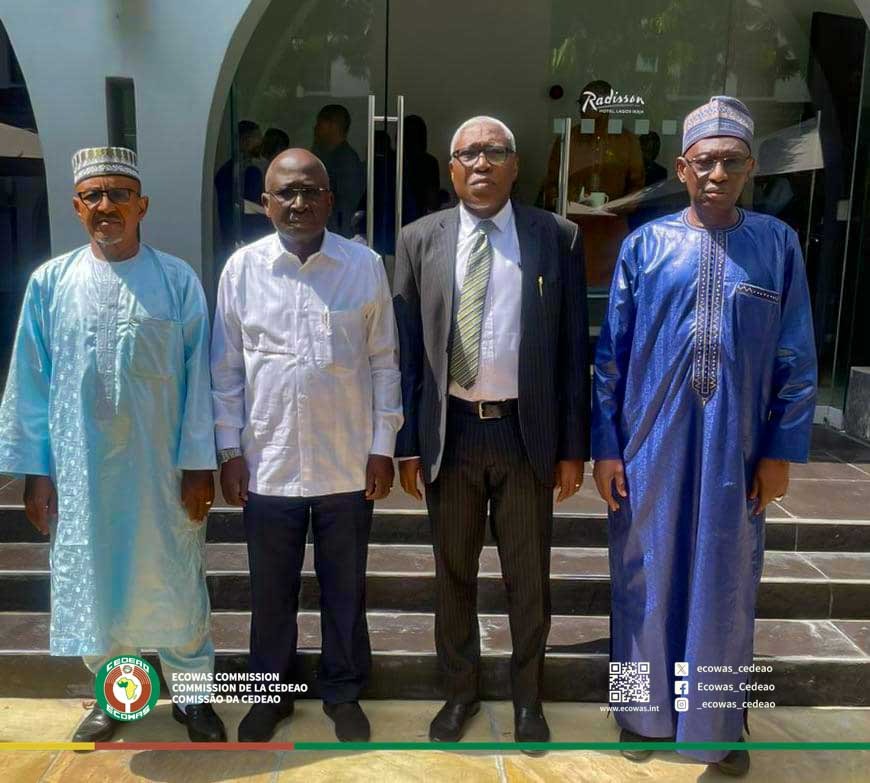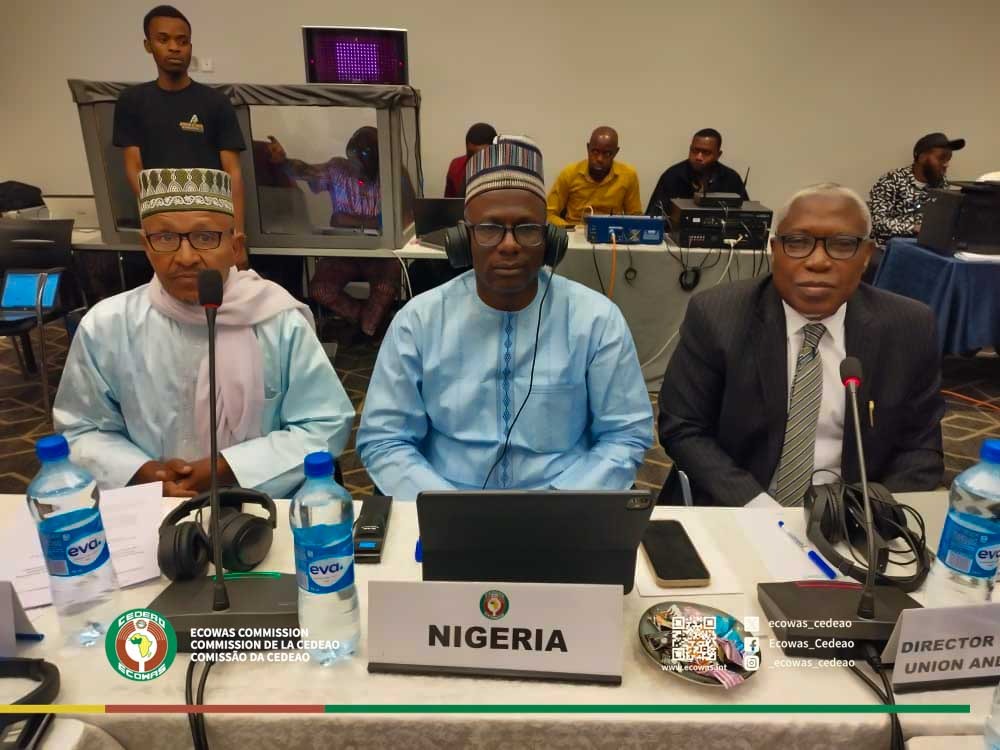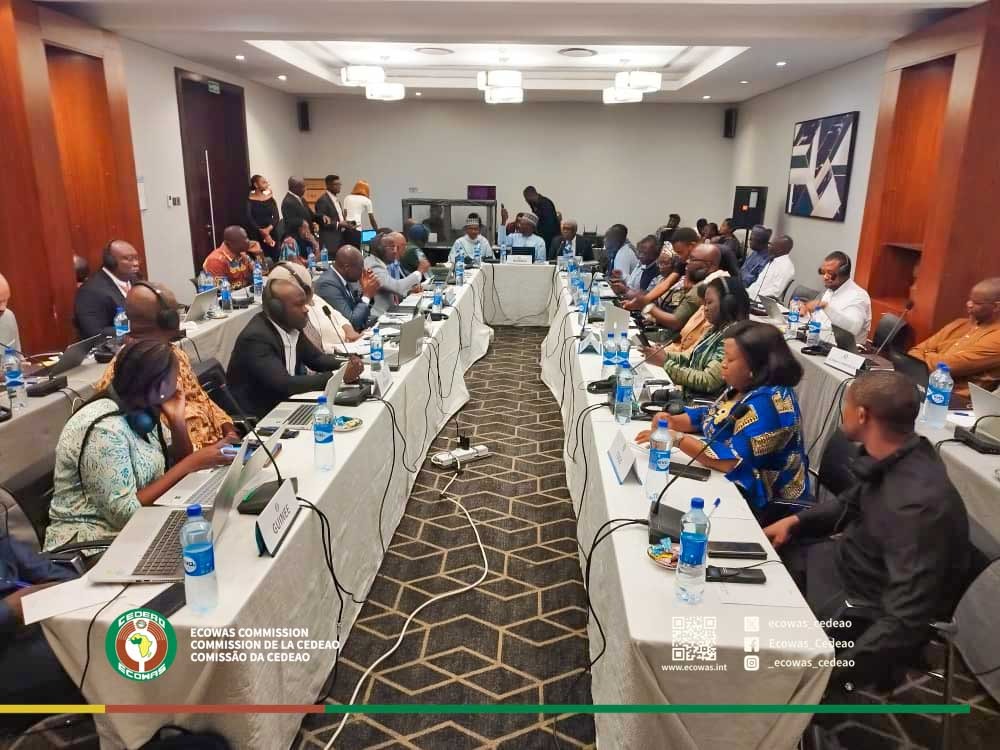The Task Force on the ECOWAS Trade Liberalisation Scheme reviews the state of implementation of the recommendations of the Cotonou Declaration on Obstacles to Trade in Originating Products
03 Dec, 2024The regional meeting of the National Committees for the Recognition of the Community Origin (NRCVG), held from 27 to 29 November and attended by members of the Task Force, reviewed, among other things, the state of implementation of the recommendations of the Cotonou Declaration on Obstacles to Trade in Originating Products.
As a reminder, the 63rd Ordinary Summit of the Conference of Heads of State and Government, held in Bissau on 9 July 2023, instructed the Commission to organise a high-level meeting with a view to resolving the problems of the free movement of goods, particularly on the Abidjan-Lagos corridor. The Task Force, with the support of the Commission, facilitated a ministerial meeting in Cotonou, Benin, from 3 to 5 October 2023.
This meeting resulted in a declaration known as the ‘Cotonou Declaration’, which made strong recommendations to both the ECOWAS Commission and the Member States of the Corridor, with a view to restoring the fluidity of traffic across the borders and facilitating the free movement of products in transit and Community products.
This meeting began by assessing the application of the ECOWAC regulatory texts on the free movement of persons and goods, with particular reference to products approved under the ECOWAS ETS.
It also reviewed the state of implementation of the recommendations contained in the Cotonou Declaration of 5 October 2023. The meeting noted the persistence of a large number of obstacles and made recommendations with a view to removing them.
Progress has been made in implementing the recommendations addressed to the ECOWAS Commission, notably with the effective deployment of the Goods Management Interconnection System (SIGMAT) on the Abidjan-Lagos Corridor and its extension to other Member States; the dematerialisation of the Certificate of Origin with the launch of the electronic Certificate of Origin on 25 November 2024; and continued capacity-building for the various stakeholders on the new procedures for recognising the Community origin of products.
On the other hand, implementation of the Cotonou Declaration by Member States remains inadequate, with persistent obstacles to the free movement of goods on the corridors, including road harassment, poor cooperation between SLE points to authenticate the Certificates of Origin presented by economic operators, the obligation on importing and ex-porting economic operators to release for consumption products approved under the ECOWAS Trade Liberalisation Scheme, and the existence of prohibition lists.Faced with this situation, the Task Force made the following recommendations:
1/ to Member States:
- Reduce the number of checkpoints on the corridor in order to promote the free movement of people and goods in accordance with ECOWAS regulations on limiting the number of checkpoints.
- Urgently remove technical barriers (prohibition list, quotas, high quality standards and other technical regulations) which constitute unnecessary barriers to intra-community trade;
iii. Use the certificate of origin in accordance with the specifications laid down by ECOWAS for Community products;
- Continue to raise awareness among economic operators of the advantages of the SLE;
- Strengthen cooperation between SLE focal points in Member States to facilitate the resolution of problems relating to Certificates of Origin.
2/ to the Commission :
- Continue efforts to modernise inter-State transit by extending the Interconnected System for the Management of Goods in Transit (SIGMAT);
- Pursue efforts to strengthen the capacities of the National Committees for the Recognition of Community Origin (NRCVG) of originating products in order to better carry out their mission;
iii. Ensure that part of the Community levy paid to the Member States is used to ensure the proper functioning of the NRCVGs and to raise awareness of the ETS among economic operators.
TASK FORCE will bring these recommendations to the attention of the Region’s highest authorities at the next ordinary statutory sessions in December 2024.




















